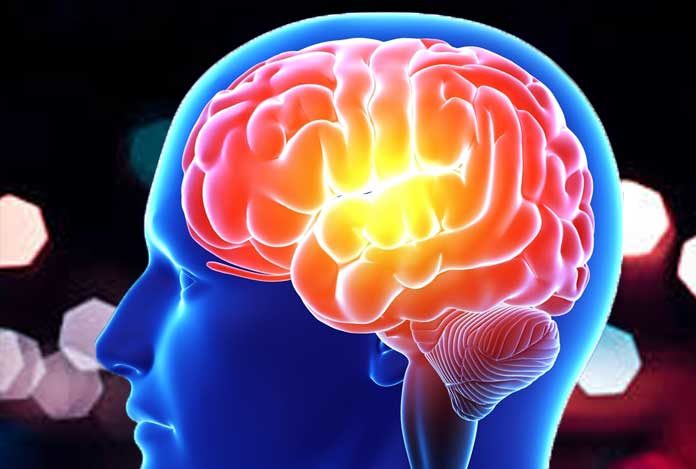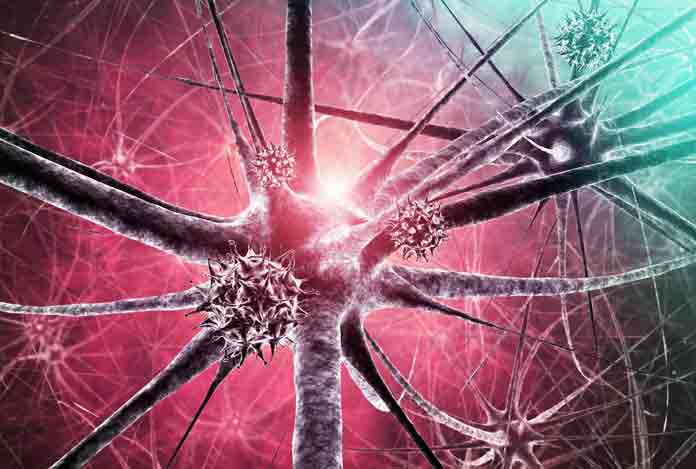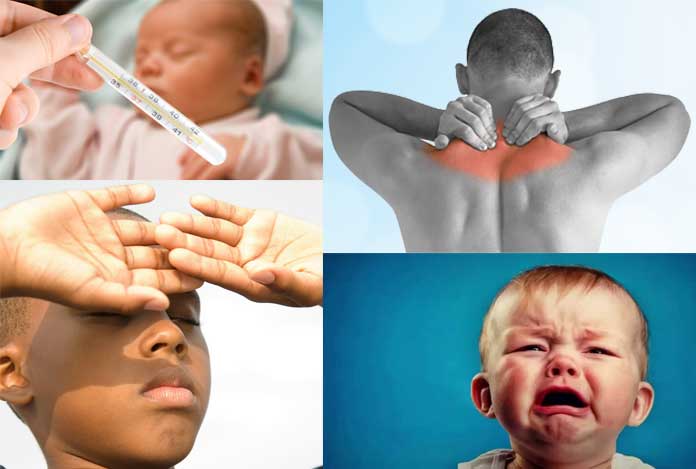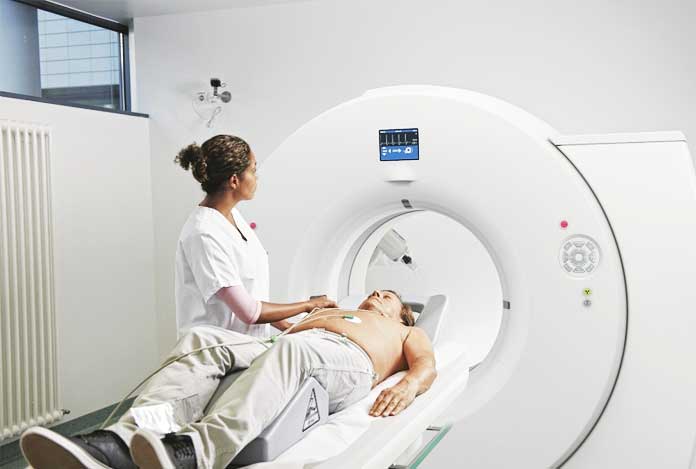
Overview and Statistical Facts
The brain is an organ belonging to the nervous system of the body, which along with the spinal cord forms the central nervous system (CNS). The brain is made up of nervous tissues, categorized as grey matter and white matter. Inflammation of these brain tissues leads to a condition, known as encephalitis.
Incidentally, it is quite different from meningitis in which, inflammation of the layers of tissue or membranes that cover the brain occurs. However, in some cases, both these diseases occur simultaneously and lead to a more complicated condition.
Encephalitis might be life-threatening and therefore, needs urgent hospitalization. It is generally caused due to viral infection. However, it can also be caused by bacterial, fungal and parasitic infections as well as chemical exposure and autoimmune reactions.
Each year, 1 in every 200,000 people gets affected by encephalitis with children and elderly being the most severely hit ones. Approximately 15% of encephalitis cases are reported in people having HIV infections. Every 1 in 1000 cases of measles has been reported to have encephalitis.

Types and Symptoms of Encephalitis
Types of Encephalitis:
Encephalitis can be divided into following types:
- Primary or Infectious Encephalitis: This occurs when a virus or other agent directly infects the brain. The infection can be widespread or concentrated in one area of the brain. A primary infection might be caused due to reactivation of an inactive virus that had infected the brain during a previous illness.
- Secondary or Post-Infectious Encephalitis: Secondary encephalitis occurs due to a faulty immune system response in which the healthy cells of the brain are also attacked by the immune system along with the infected cells. It can occur 2-3 weeks after the initial infection.
Symptoms Encephalitis:
Encephalitis can cause mild to severe symptoms in people suffering from it.
Mild symptoms as seen in adults are as follows:
- Fever
- Headache
- Vomiting
- Lethargy
- Stiff neck
Severe symptoms found in adults are as follows:
- Fever of 103° F or 39.4°C or higher
- Confusion
- Drowsiness
- Hallucinations
- Coma
- Seizures
- Unconsciousness
- Sensitivity to light
- Irritability
- Slower movements
Following symptoms of encephalitis are observed in infants and young children:
- Vomiting
- Constant crying
- Poor appetite
- Body stiffness
- Bulging fontanel (soft spot in the scalp)

Risk Factors of Encephalitis
Age groups with the maximum risk of developing encephalitis include:
- Older adults
- Children under the age of 12 months
- People having weak immune system
- People living in areas infested with mosquitoes or ticks
- Season of the year when mosquito- and tick-borne diseases are more common

Do I have Encephalitis?
If your child has a fever along with a bulging spot on his head, stiffness in neck, skin rash, change in alertness, appetite loss, nausea, and vomiting, you must consult a doctor as soon as possible. Moreover, if your child hasn’t received MMR and other vaccinations, then your child is at a high risk of developing encephalitis.
If you observe a slight fever, nausea, headache or other mild flu-like symptoms accompanied by seizures, confusion, disorientation, and difficulty in thinking and walking in an adult, there is a chance that you might have encephalitis.
Do you observe red patches or redness anywhere on your skin? Does your neck feel stiff or you have neck pain? Are you facing any problem staring towards a light source? If the answer is yes, then you must immediately see a doctor and get yourself examined.
However, there is also a possibility that flu-like symptoms might be caused due to an infection from influenza virus or herpes virus or hepatitis virus. Similarly, stiffness in the neck might indicate Lyme disease or light sensitivity because of migraine, meningitis or uveitis. Therefore, it is suggested to consult a doctor for correct diagnosis of the condition.

Causes and Prevention of Encephalitis
Causes of Encephalitis:
There are a number factors that cause encephalitis. These are:
A) Virus
1) Herpes Simplex Virus (HSV): Herpes virus is one of the common causes of encephalitis. It is transmitted directly through human contact and can even infect newborn babies while they pass through an infected birth canal. Once the virus enters the body, it travels through the nerve fibers and reaches the brain, where it causes the infection. The virus might also undergo a period of latency in which it remains inactive. Emotional and physical stresses can activate the virus later, leading to infection. It is responsible for the most sub-acute and chronic encephalitis in humans.
2) Arbovirus: It refers to a group of viruses that are transmitted by mosquitoes and tick. Humans become infected through mosquito and tick bites. After entering the body, the virus multiplies, travels in the bloodstream and reaches the brain, where it causes the infection. Brain infection occurs only when the number of viruses is high. Some of the arbovirus infections are:
- West Nile Virus (WNV): The virus was first isolated in an adult woman, having a fever, in the West Nile district of Uganda. The virus is known to cycle between Culex mosquito and hosts like cats, birds, bats, chipmunks, and squirrels. When a mosquito carrying the infected blood bites a human, the virus gets transmitted. It takes 3 to 15 days for the virus to incubate and show symptoms. It is neither transmitted from person to person by touch nor can it be transmitted from animals to humans. Less than 1% of the mosquitoes carry the infected blood and only around 1% of the infected people develop severe symptoms. Majority of the people develop mild symptoms and gain lifelong immunity.
- LaCrosse Encephalitis Virus: This virus was first identified in LaCrosse, Wisconsin, and known to be one of the most common causes of mosquito-borne encephalitis affecting children below the age of 16. The virus has a cycle between day-biting Aedes triseriatus and hosts like squirrels and chipmunks.
- St. Louis Encephalitis Virus: St. Louis encephalitis virus spreads through mosquito bites, and has been found to cycle between Culex mosquito and birds. It is more severe in adults than children.
- Colorado Encephalitis Virus: Also known as Colorado tick fever, it is transmitted through female wood tick. It is a mild disease and most people recover from it with little care.
- Kyasanur Forest Disease: This disease is transmitted through tick bites and therefore hunters, farmers and campers are at a high risk of developing this disease.
3) Eastern Equine Encephalitis (EEE) Virus: The virus spreads through bites of mosquitoes carrying infected blood. It causes severe disease in horses, birds, and puppies. In humans, the symptoms appear 10 days after the bite of an infected mosquito. It can cause death in 50-75 % of patients with EEE. Nine out of 10 infected people have mild to severe impairments. Severe permanent damage like mental retardation, paralysis, seizures and behavior abnormalities occur in people, who ultimately recover from the infection.
4) Western Equine Encephalitis (WEE) Virus: The WEE virus cycles between Culex tarsalis mosquito and some small songbirds. It gets transmitted to humans and horses through bites of infected mosquitoes. This virus particularly affects the infants and causes developmental delay, seizure disorder, and other permanent problems.
5) Venezuelan Equine Encephalitis (VEE) Virus: It is rare, but a leading cause of encephalitis in Central and South America. It cycles between Culex mosquito species and forest-dwelling rodents. The infection is much less severe in humans than in horses and other animals. Adults develop flu-like illness, whereas infants have full-blown encephalitis.
6) Japanese Encephalitis Virus: This virus is responsible for affecting infants and young adults the most. It cycles between Culex tritaeniorhynchus mosquito and domestic pigs and birds. The disease is only transmitted by infected mosquitoes.
7) Zika Virus: Zika virus spreads by the bite of an infected Aedes mosquito. It can even be passed on to fetus from the mother and cause microcephaly, Guillain-Barre disease, disseminated encephalomyelitis and other birth defects. The virus mostly spreads through a mosquito bite, but some evidence of sexual transmission of the virus is also known.
8) Rabies Virus: Rabies virus causes encephalitis rabies in nearly 80% of the people, who get bitten by rabid animals.
9) Other Viruses: In infants and young children, some of the viruses that can cause encephalitis are:
- Chickenpox
- Measles
- Rubella
However, due to extensive vaccination programs run by various governments across the globe, these types of encephalitis have become rare.
B) Bacteria:
Neisseria meningitidis, Mycoplasma species and other bacteria that cause Lyme disease, syphilis, tuberculosis are known to cause encephalitis in some individuals.
C) Fungi
Candida, Mucormycosis, Cryptococcus and other fungal strains have been known to be responsible for encephalitis.
D) Parasites
Toxoplasma, Naegleria and other parasites cause encephalitis.
E) Others
- Allergic responses to vaccinations
- Autoimmune diseases like Rasmussen’s encephalitis
- Brain cancer
- Prions that cause encephalitis, like mad cow disease
- Myalgic encephalitis or chronic fatigue syndrome
- Chemical encephalitis as seen with the use of drugs, alcohol (Wernicke-Korsakoff syndrome) due to decreased liver function, affecting brain tissue
- Development of auto-antibodies that affect N-methyl-d-aspartate (NMDA) glutamate receptors, called anti-NMDA receptor antibodies, resulting in NMDA receptor encephalitis

Prevention of Encephalitis:
By eradicating smallpox and developing vaccines against measles, mumps and rubella have helped in decreasing the incidences of encephalitis, especially in children. Other measures that can be adopted to prevent encephalitis include protection against mosquito and tick bites and getting vaccinated when traveling to places that have a high incidence of encephalitis-causing diseases. Vaccines that are available for preventing encephalitis are as follows:
- Japanese encephalitis vaccine (JEV)
- Equine (horse) vaccines for EEE, WEE, and VEE (not for humans)
- Tick-borne encephalitis vaccine (TBEV) (only in Europe)
Animals that can cause rabies should be vaccinated against rabies virus. Babies being born to mothers having active herpes lesions of the genital tract should be delivered through a Caesarean-section.

Diagnosis and Tests for Encephalitis
The physician performs a thorough physical examination if encephalitis is suspected.
Following tests might also be performed to confirm the diagnosis:
- Brain Imaging with CT Scan or MRI: These scans are performed to detect changes in the brain structure. They also help in ruling out the possibility of tumor or stroke as the cause of the symptoms. By inspecting the affected part of the brain, the type of virus can be determined.
- Electroencephalograph (EEG): An EEG is used to determine brain activity. Certain alterations in the EEG can help the physicians in diagnosing encephalitis. The disease causes seizures and coma in the advanced stages. Therefore, EEG is done to determine the areas of the brain that are affected and the types of brain waves occurring in each area.
Spinal Tap or Lumbar Puncture: A fine needle is inserted into the lower back of the patient and spinal fluid is collected, which is then tested for the signs of infection. - Blood Tests: Blood tests can be done to determine viral infections. However, they are generally performed along with other tests and rarely alone.
- Brain Biopsy: It is an extremely rare procedure, which is performed only when the cause of encephalitis cannot be determined with other diagnostic methods or when the treatment is not working. A small sample of the brain is taken out and analyzed for infection.

Treatment and Care of Encephalitis
Treatment of Encephalitis:
Treatment of encephalitis should be started as early as possible. It involves addressing the underlying cause, relieving symptoms and supporting bodily functions.
Possible treatments that are started after identifying the cause of the disease are discussed below:
- Antiviral Medication: If encephalitis is caused due to herpes, chicken pox or other viral infections, antiviral medicines are prescribed. These are given intravenously three times a day for two to three weeks.
- Antibacterials/Antifungals: When encephalitis is caused due to bacterial or fungal infection, antibacterials (antibiotics) or antifungals are prescribed, respectively.
- Steroid Injections: When encephalitis results from problems in immune system or in some cases linked to chicken pox virus, steroid injections are prescribed for a few days.
- Immunoglobin Therapy: This therapy is used when steroids fail to show its effects in cases of encephalitis caused due to improper functioning of the immune system.
- Plasmapheresis: In some cases, when immunoglobulin therapy does not work, plasmapheresis is performed in which substances that are attacking the brain are removed from the blood.
- Surgery: If a tumor in some part of the body triggers encephalitis, surgery is performed to remove it.
Besides, following measures are adopted to support bodily functions:
- Intravenous fluids to prevent dehydration
- Painkillers to decrease discomfort
Anti-seizure medications to prevent seizures - Oxygen to support lungs
- Medication to prevent build-up of pressure inside the skull
- Sedatives to control anxiety, irritability, and aggressiveness
- Lukewarm sponge baths are given to decrease body temperature
- Complete rest
- Rarely, surgery might be done to remove a small piece of the skull to relieve the pressure inside it if the medication does not help.

Care for People with Encephalitis:
Encephalitis is a serious health condition that should be treated under medical supervision. Over-the-counter (OTC) medications can be taken for managing primary symptoms of fever, pain or discomfort. However, medicines should be taken cautiously. The patient should be kept hydrated. Lights can be dimmed if the patient feels discomfort in the normal or bright light. A healthy and balanced diet should be followed along with plenty of rest to speed up the recovery process.
Recovery from encephalitis is a long process and can take several weeks or months. People can develop personality changes, fatigue, seizures and other serious complications. In children, the illness can cause some disruption in the development of the child’s brain.

OTC Medication and Self-Management Methods for Encephalitis
When encephalitis is suspected, the patient should be rushed to the hospital for immediate care and medical attention without delay. Anti-inflammatory drugs such as acetaminophen (or paracetamol), ibuprofen and naproxen sodium can be taken to relieve fever and headaches. The patient should be given plenty of fluid to avoid dehydration.
Since encephalitis can be fatal if it is not treated properly on time, treatment should be sought from a doctor as soon as possible. Any home remedy to manage flu-like symptoms should only be taken after consulting the doctor. If the symptoms become worse with time, the patient should be hospitalized without delay.

Natural Ways to Cure Encephalitis
Encephalitis can get serious if not treated properly. However, there are a few home remedies that can be followed strictly under medical supervision for curing a general viral infection. These are:
- Alizarin: It is a red dye obtained from the roots of the common madder plant, Rubia tinctorum, which helps improve the symptoms of herpes infection. It might be toxic and hence, should be avoided for long-term therapy. Pregnant and lactating women should avoid taking it.
- Astragalus: Astragalus products, obtained from the roots of Astragalus membranaceus is used in Chinese medicines for treating heart, lung and liver diseases, viral infections, and numerous other ailments. It is also used to treat the symptoms of pericarditis, hepatitis B and C, HIV and so on. Despite its numerous benefits, it should only be used under medical supervision.
- Cranberries: Cranberries have been shown to possess some amounts of antiviral activity and therefore, used to manage the symptoms of encephalitis.
- Turmeric: Turmeric has been known to have antibiotic and antiviral properties for centuries. It can be used to decrease viral load in the body.
- Garlic: Garlic possesses antibacterial and antiviral properties. However, cooking destroys allicin – an active compound in garlic. Hence, it is recommended to be taken raw to fight against infections.

Health Tip by Experts
Encephalitis is a condition that can become dangerous if not managed at the right time with right treatment. However, by taking proper precautions against herpes and other viral infections, and mosquito and tick bites. MMR and other vaccines given to newborn babies decrease their risk of developing encephalitis. Preventive vaccines can be taken when traveling to areas having a high incidence of encephalitis. Recovery from the disease is a long process but can be made easy by following a healthy lifestyle.




